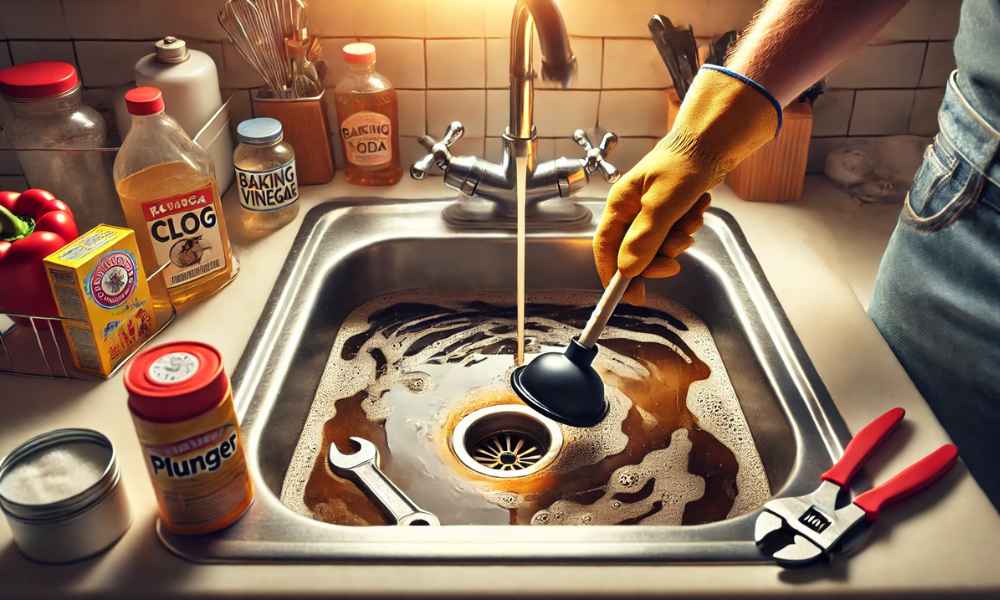Grease clogs, the ones sneaky villains of the kitchen, regularly capture us off guard. One second, your sink is flowing freely, and the following, water is lingering stubbornly, refusing to drain. The ugly smells that comply with handiest heighten the disappointment. Clear Grease Clog In Sink can also seem daunting, but when you apprehend the causes, the answers are noticeably easy. Let’s dive into the arena of tallow clogs and discover a way to address them head-on, without the want for regular plumber calls.
Understanding Grease Clogs: What Are They and Why Do They Happen?
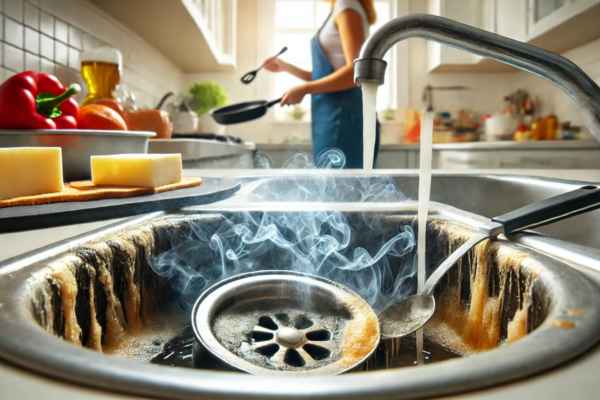
Grease clogs are the result of fat, oils, and tallow (usually called FOG) locating their manner into your pipes. Initially, when these substances are hot, they appear harmless, flowing without difficulty down the drain. But as they cool, they solidify and adhere to the interior of your pipes like unwelcome visitors. Over time, layers construct upon layers, till water can now not pass.
Many kitchen workouts, even though harmless in appearance, contribute to those clogs. Rinsing off greasy pans, dumping leftover cooking oil, or washing butter-covered utensils — those conduct may additionally appear minor but set the precise level for grease to accumulate and develop. The extra we forget about the accumulation, the more difficult it becomes to manipulate.
Signs Your Sink Has a Grease Clog
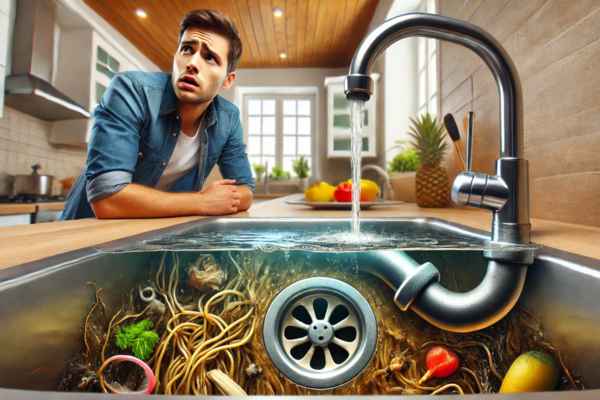
Slow drainage is often the primary whisper of trouble, an early indicator that some thing is lurking underneath. Water now not disappears down the drain with its usual speed, as a substitute lingering as though uncertain wherein to go. But this is just the beginning. Soon, you could word extraordinary gurgling noises as water struggles to push through the narrowing passage, looking to get away but trapped at the back of the tallow. And then, the unmistakable odor — the heady scent of decomposing food and oil trapped within the pipes. When your sink smells even when it’s easy, it’s a caution signal that grease is responsible.
Why It’s Important to Clear Grease Clogs Quickly
Waiting is the enemy with regards to tallow clogs. The longer grease sits, the harder it will become to break aside. What starts offevolved as a small nuisance can fast morph into a severe trouble. Over time, the clog solidifies, and rather than only a slow drain, you might face complete blockages. Grease also poses a hazard to the integrity of your pipes. Corrosion turns into a actual possibility, and abruptly, you’re looking at pipe replacements or high-priced repairs. Prompt motion can save you these failures, saving you time, cash, and a variety of frustration.
Tools and Materials You’ll Need to Clear a Grease Clog
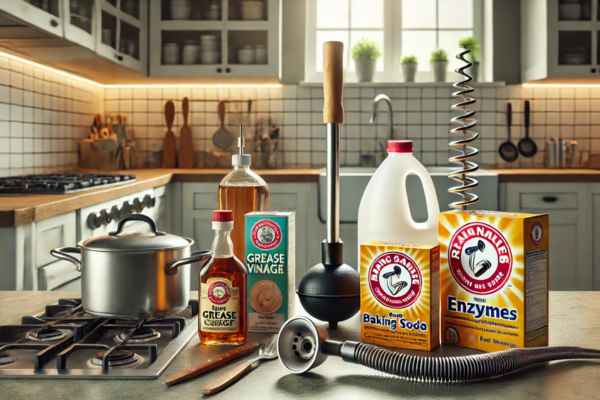
Before you start, make certain you’re equipped with the right tools. A plunger can deal with many minor clogs, the usage of easy suction to interrupt apart the blockage. However, for harder clogs, a drain snake, also called a plumber’s auger, can attain deep into your pipes to dislodge cussed tallow. Non-toxic cleansing retailers, which includes baking soda and vinegar, are wonderful alternatives to harsh chemicals. They’re safe to your pipes and the environment. Hot water, a easy but effective device, works wonders in breaking down softer grease. And for folks who select green alternatives, enzyme-primarily based cleaners provide a powerful solution with out unfavorable your plumbing device.
The Boiling Water Method: A Simple First Step
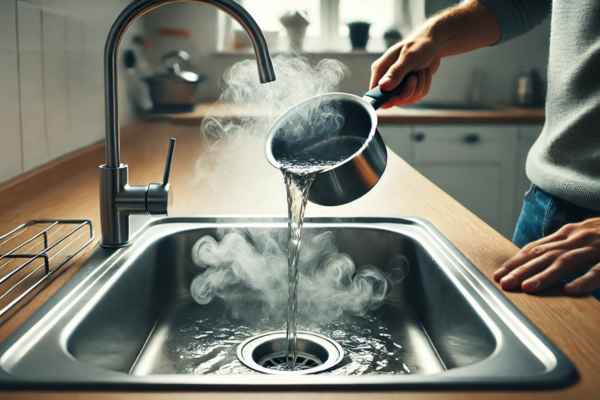
Grease starts offevolved to build up, boiling water can be your first line of protection. Though it appears too smooth, it really works with the aid of melting tallow before it absolutely solidifies. Boil a pot of water and pour it slowly down the drain, allowing the heat to soften the clog. Pour in degrees, letting each spherical of boiling water paintings its magic before adding more. This approach is best for more recent clogs or as a preventive measure. While it could not tackle heavy blockages, it’s perfect for retaining small quantities of grease from hardening in the first place.
Using Baking Soda and Vinegar to Clear a Grease Clog
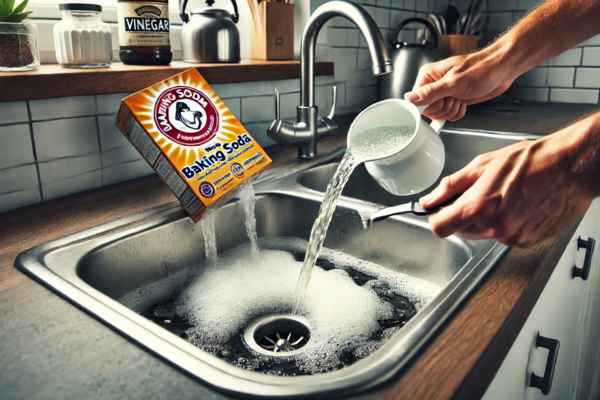
Baking soda and vinegar create a natural chemical response this is surprisingly powerful at breaking down grease. The baking soda acts as an abrasive, even as the vinegar enables dissolve tallow particles. Start by means of pouring a cup of baking soda down the drain, observed by using an same amount of vinegar. Cover the drain to let the fizzing reaction recognition on the clog. After approximately 15 mins, flush the drain with hot water to push the debris out. This effervescent aggregate now not most effective breaks down grease but also helps dislodge any trapped meals debris.
Plunging Your Sink: How to Do It Correctly
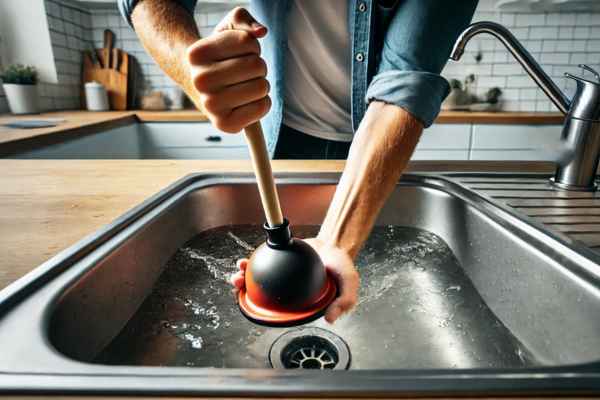
Plunging can also appear easy, however there’s a technique to maximize its effectiveness. Ensure that there’s enough water within the sink to cowl the rubber part of the plunger. Position it firmly over the drain, then push down and pull up vigorously to create suction. This stress can assist loosen and raise the clog. Consistency is prime. If after some attempts the clog persists, it could be time to transport directly to another approach, or possibly attempt a stronger device.
The Drain Snake Solution: For Tougher Grease Clogs
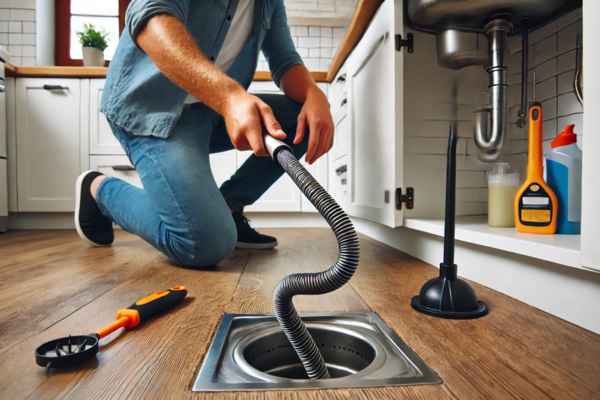
For the maximum stubborn clogs, the drain snake is your fine ally. This long, flexible tool can attain deep into the pipes, some distance past what a plunger can manipulate. As you manual the snake into the drain, you’ll sense resistance once it encounters the clog. By rotating the snake, you destroy apart the blockage, then pull it again to put off debris. A drain snake is good for grease clogs which have hardened or turn out to be lodged deep inside your pipes, supplying a dependable solution whilst other techniques fail.
Grease Dissolving Products: Which Ones Work Best?
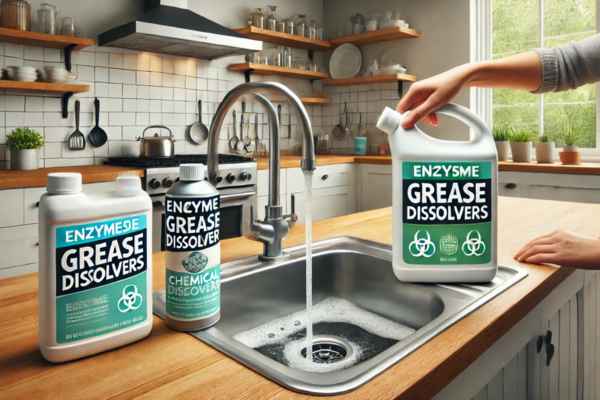
DIY strategies fall brief, there are business grease dissolvers that could tackle even the maximum chronic clogs. Enzyme-primarily based cleaners are a popular preference, as they clearly spoil down fats and oils with out causing harm on your pipes or the surroundings. These cleaners take time, so patience is required, but their effectiveness can’t be denied. They offer a gentler alternative to harsh chemical cleaners, which, even as powerful, can now and again damage your plumbing in the end.
How to Prevent Grease Clogs from Forming Again
Prevention is fundamental when it comes to grease clogs. The high-quality method is to avoid pouring tallow down the drain absolutely. Instead, accumulate leftover grease in a box and do away with it in the trash. This easy dependancy can make a international of difference in stopping future clogs. After washing greasy dishes, run hot water thru your pipes to help flush out any last particles earlier than they have a chance to cool and solidify. Using natural treatments like baking soda and vinegar often also can keep your pipes clean.
Installing a Grease Trap: Is It Worth It?
For households that regularly deal with grease clogs, a tallow entice might be well worth the funding. This device captures grease earlier than it enters your pipes, preventing buildup from occurring within the first region. It’s normally established underneath the sink and calls for normal cleansing, however the benefits can some distance outweigh the inconvenience.
When to Call a Professional Plumber
DIY techniques are tremendous, but they have their limits. If you’ve attempted the entirety and your sink remains clogged, or if water is backing up into your house, it’s time to name a professional. A plumber has specialized equipment and knowledge which can tackle intense blockages and verify whether or not more enormous maintenance are vital.
Maintaining a Clog-Free Sink: Regular Maintenance Tips
Routine protection is the quality manner to ensure your sink remains clog-loose. Flush your drains with hot water regularly, use baking soda and vinegar to clean any minor buildup, and take note of what you pour down the sink. These conduct, mixed with occasional professional inspections, can hold your pipes in high-quality circumstance for future years.
Conclusion
Grease clogs on your sink may also seem inevitable, however they’re completely plausible with the right method. From easy methods like boiling water and baking soda, to greater advanced equipment like drain snakes, clearing those blockages can be achieved successfully without the want for expert assist in maximum instances. The key lies in taking rapid movement at the first symptoms of a clog and incorporating preventive measures into your every day kitchen routine. By being mindful of what goes down the drain and adopting eco-friendly solutions, you may hold your pipes flowing easily and keep away from luxurious upkeep. And while all else fails, in no way hesitate to seek professional help to ensure your plumbing stays in top shape. Keep your sink clog-free, and enjoy the peace of mind that comes with a well-maintained kitchen system.
